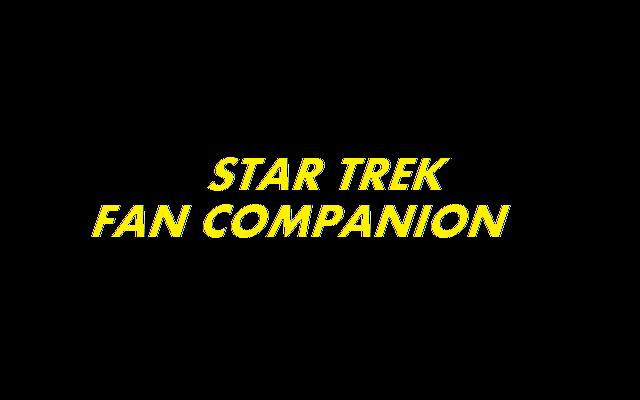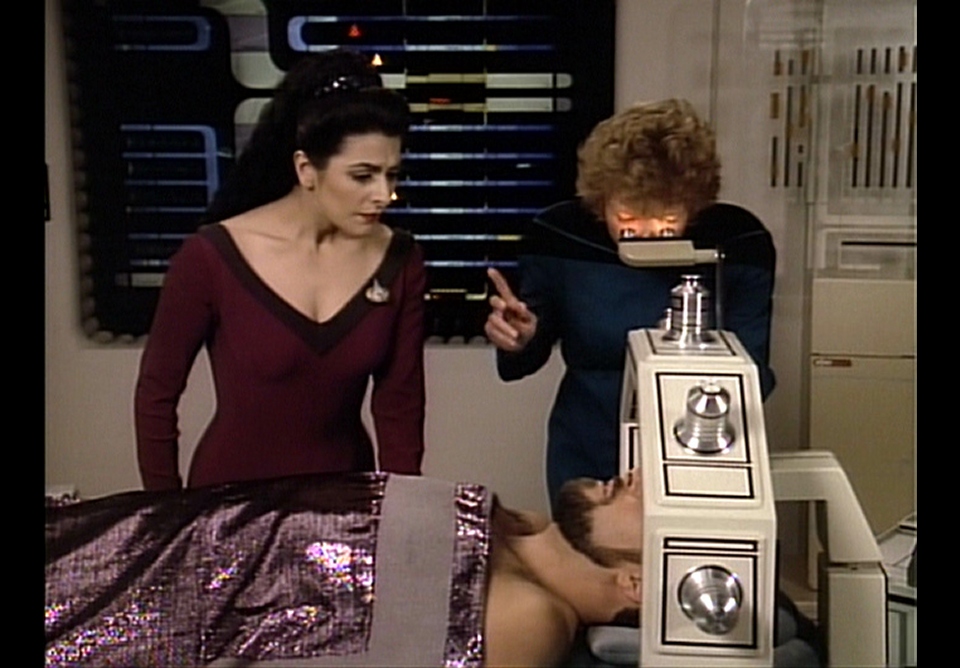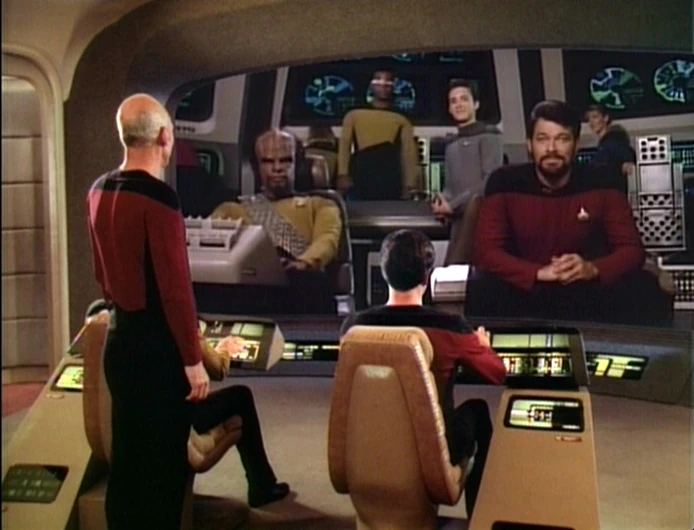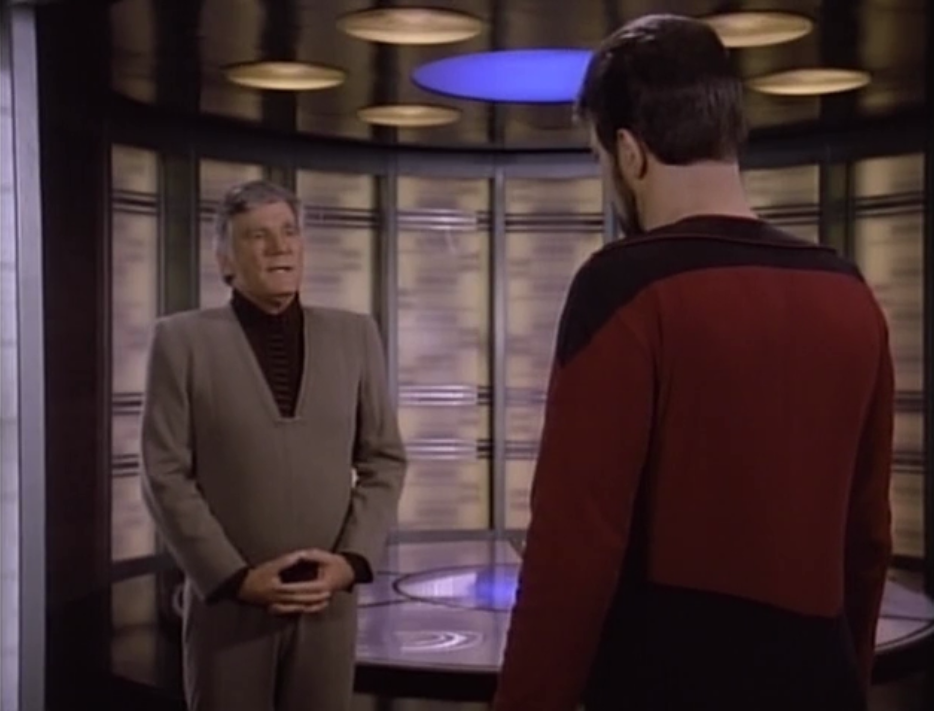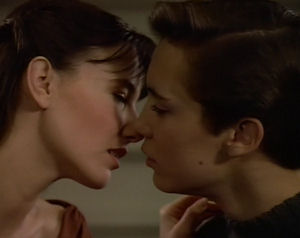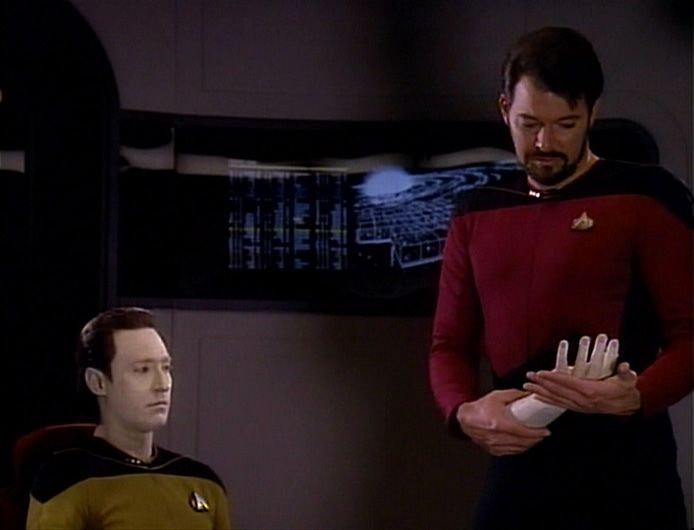Memory Alpha summary
But there's more than one way to view "Shades of Gray," one of which being hindsight, which actually turns out to be quite valuable.
In context, "Shades" is pretty valuable. It's one last reminder of how the whole second season seemed poised to make Riker the lead character over Picard, if need be to fix continuing creative ailments, find the show's true voice. Of course, later the voice turned out to be just fine with the characters as they were, more or less, just more properly balanced. Nobody knew that at the time. Something more radical was considered. This is pure speculation on my part, but the evidence of the second season speaks for itself.
"Shades" also serves as a testament to everything the first two seasons tried, a best (or perhaps best and worst) of the series to that point, which might actually serve as an excellent way for fans who don't otherwise want to wade into the complete experience to get a feel for what the show was like before the third season brought it into what everyone remembers best.
For anyone looking for more nuanced opinions of Star Trek than what immediate, gut reactions said at the time and continue to inform general thought, "Shades" is everything you need to know in a nutshell. In one sense, a clip show for a series two seasons old with every indication of continuing seems improbable even now, and creatively it couldn't have been very fulfilling, but conceptually it ends up doing a lot more than it seems. This is where perspective comes into play. No, I am not saying it's a classic, but it's far more significant than a lot of other episodes that try to do a lot more and fail more spectacularly. And it's character-focused, in ways the second season routinely tried to be and in fact was generally at its most successful when it was, which is exactly the lesson the third season took, that Next Generation was better when it focused on its rich cast of characters rather than, like its predecessor in the original series, just throwing concepts at fans and hoping they'd stick, with the odd amusing commentary from a handful of memorable personalities.
That's how you defend an otherwise maligned episode.
four quarter analysis
notable guest-stars:
Diana Muldaur
Colm Meaney
